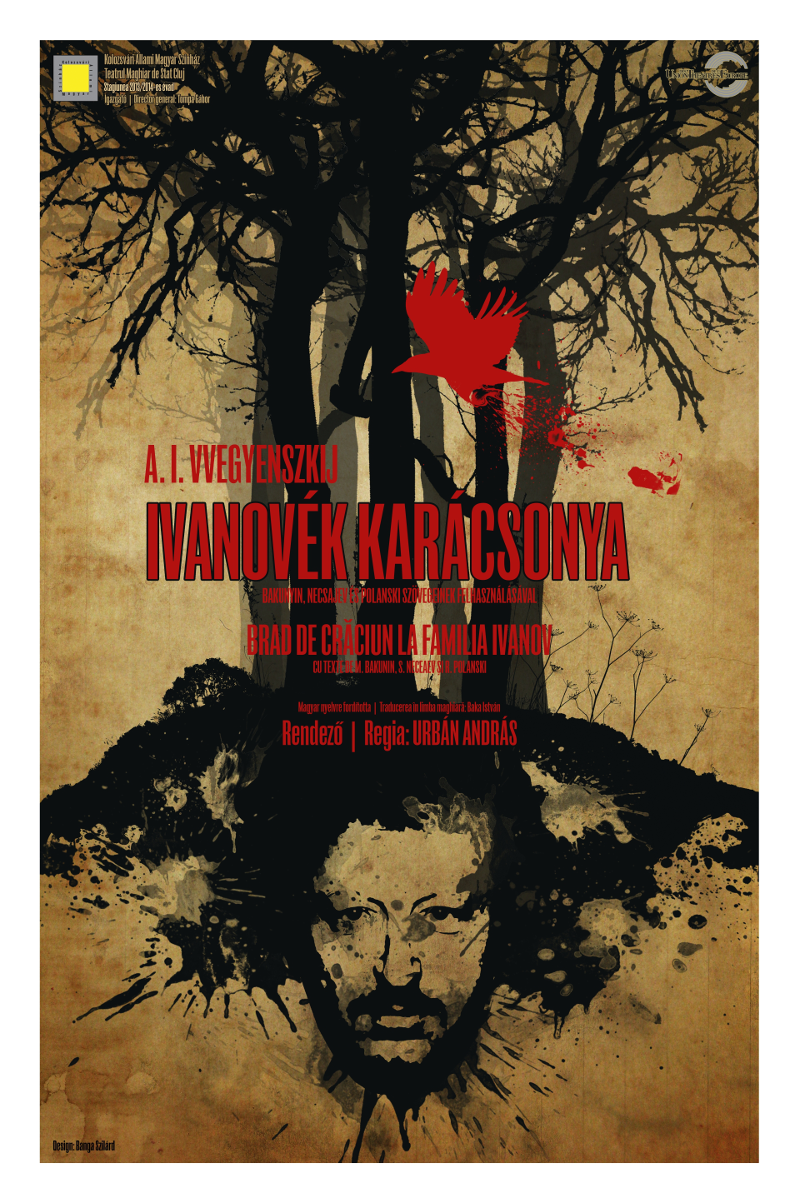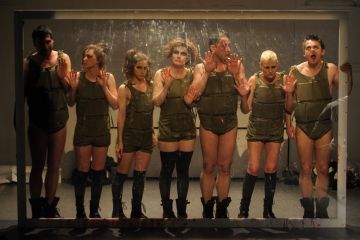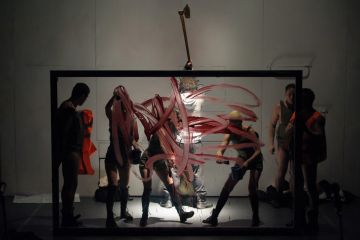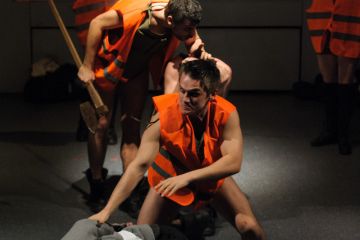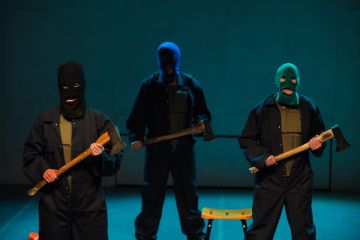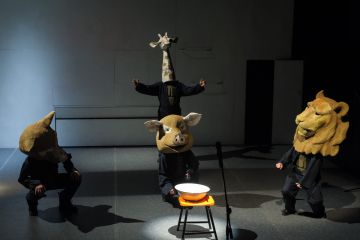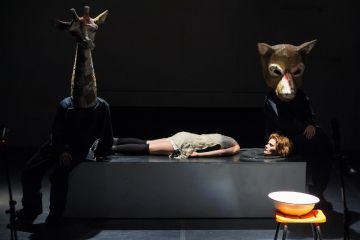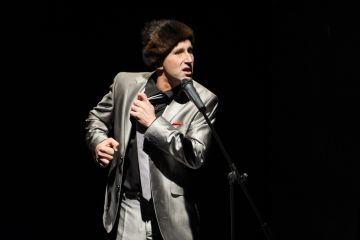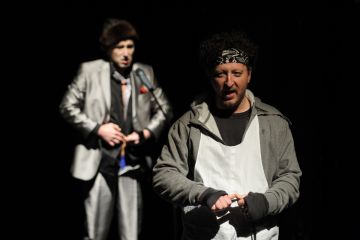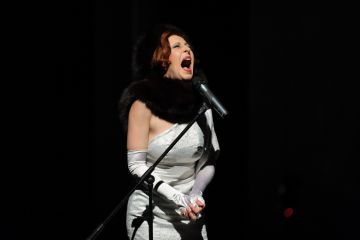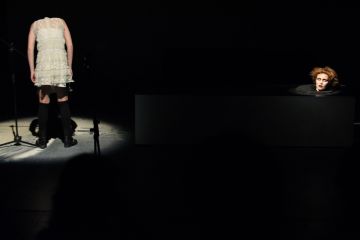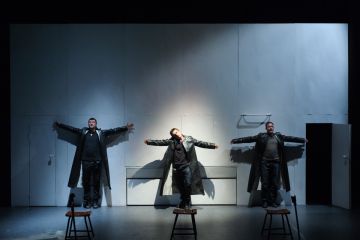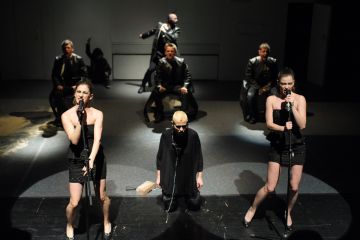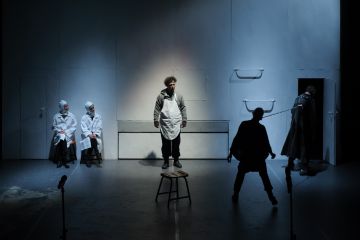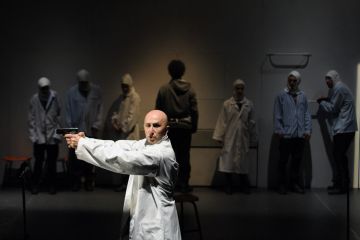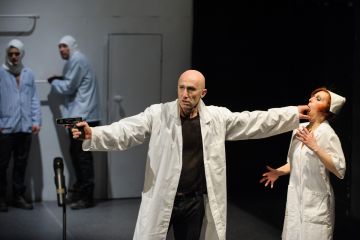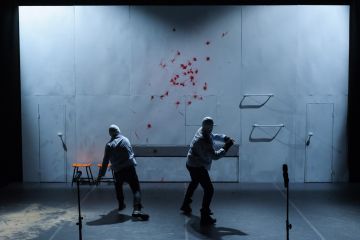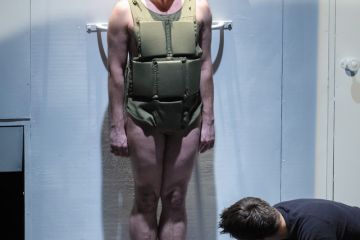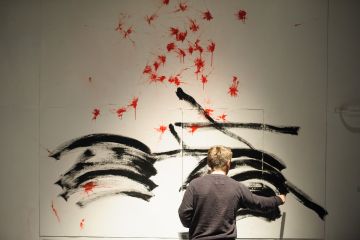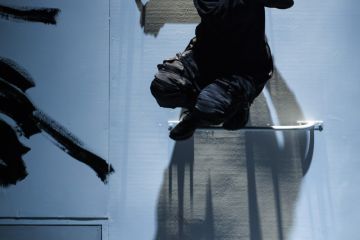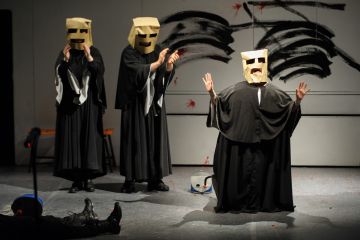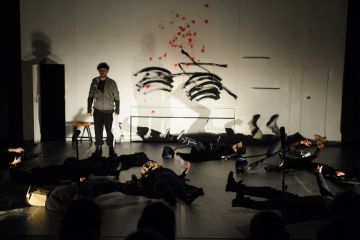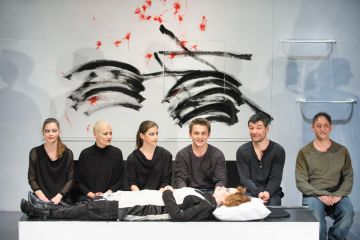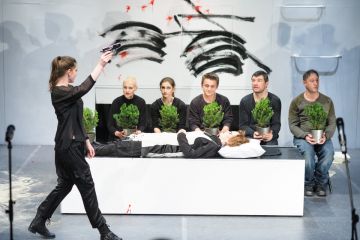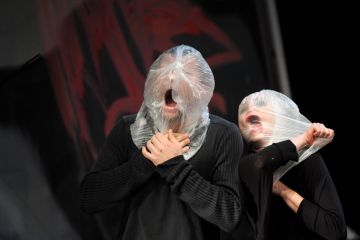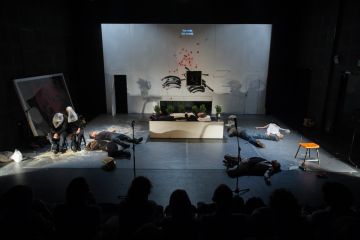Al. I. Vvedenski
Christmas at the Ivanovs
Studio
Nanny / Fiodor
Gábor Viola
Puzyrov - father
Lóránd Váta
Puzyrova - mother
Csilla Albert
Sonya Ostrova, thirty-two-year-old girl
Imola Kézdi / Gizella Kicsid
Petya Perov, one-year-old boy
Áron Dimény
Nina Serova, eight-year-old girl
Éva Imre
Varya Petrova, seventeen-year-old girl
Júlia Laczó
Volodya Komarov, twenty-five-year-old boy
Csaba Marosán
Misha Pestrov, seventy-six-year-old boy
Loránd Farkas
Dunya Shustrova, eighty-two-year-old girl
Zsuzsanna Vass
Gábor Viola
Lóránd Váta
Csilla Albert
Imola Kézdi / Gizella Kicsid
Áron Dimény
Éva Imre
Júlia Laczó
Csaba Marosán
Loránd Farkas
Zsuzsanna Vass
Policemen, police chiefs, patients, attendants, doctors, dogs, woodcutters, animals, judges
directed by
András Urbán
set and costume design
Carmencita Brojboiu
dramaturg
Kata Gyarmati
music composed by
Attila Antal
stage manager
Attila Antal
Date of the opening: march 18, 2014
Date of opening: 18 March 2014Duration: 1 hour 20 minutes without intermission
Christmas at the Ivanovs bears the stylistic characteristics of the avant-garde, the absurd, the grotesque, social satire, and horror drama. The structure of the play is episodic, a chain of loose scenes lacking any causality or logical coherence.
The title of the play suggests that we are about to see an intimate story. However, at the centre of the drama is a brutal, horrifying murder. On the evening before Christmas, while the Puzirjov parents are at the theatre watching a ballet, the nanny bathes their child. Sonja Ostrova, the 32 year old girl, talks back to her nanny who, in her fury, beheads the child with an axe. The police arrestthe nanny. The parents, returning home, panic and then make love. Despite the tragic events, the parents decide that the Puzirjov family will celebrate Christmas. Some woodcutters are cutting fir trees in the forest and they take one to the Puzirjovs. At first, the nanny is put into an asylum, but the doctor declares her healthy, so she has to appear in court. During the judicial process the judges die, one after the other. Finally, we see Christmas Eve at the Puzirjovs, where all the members of the family die during the course of the evening.









